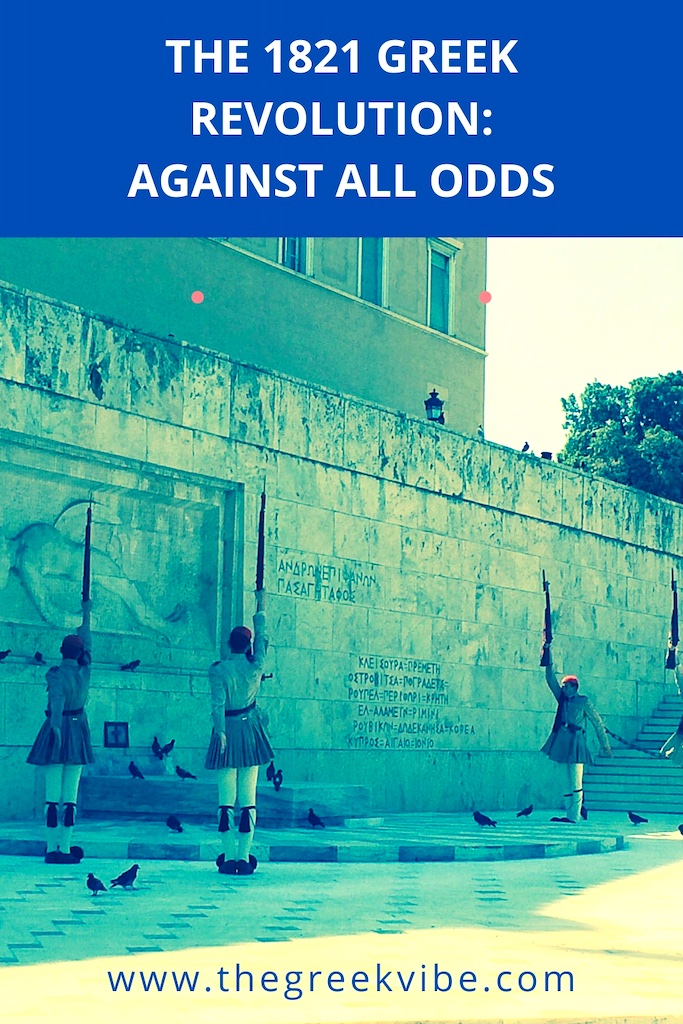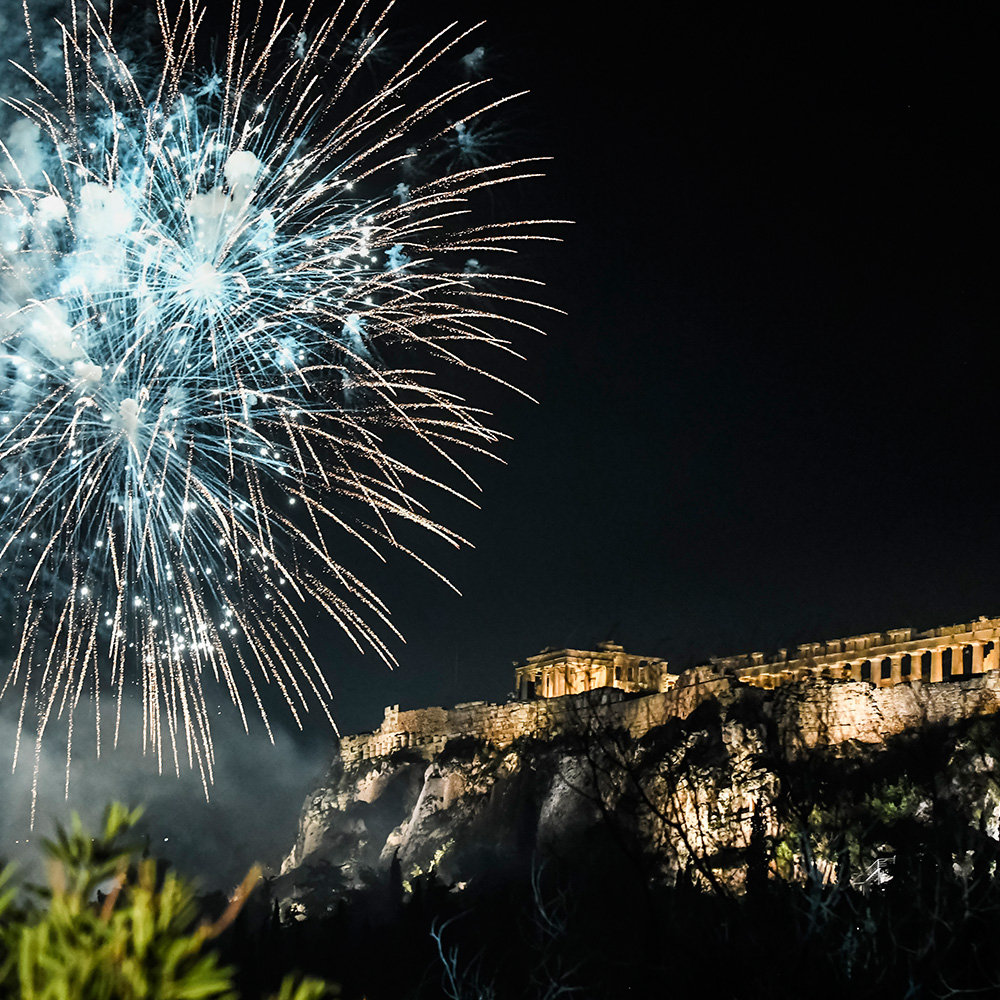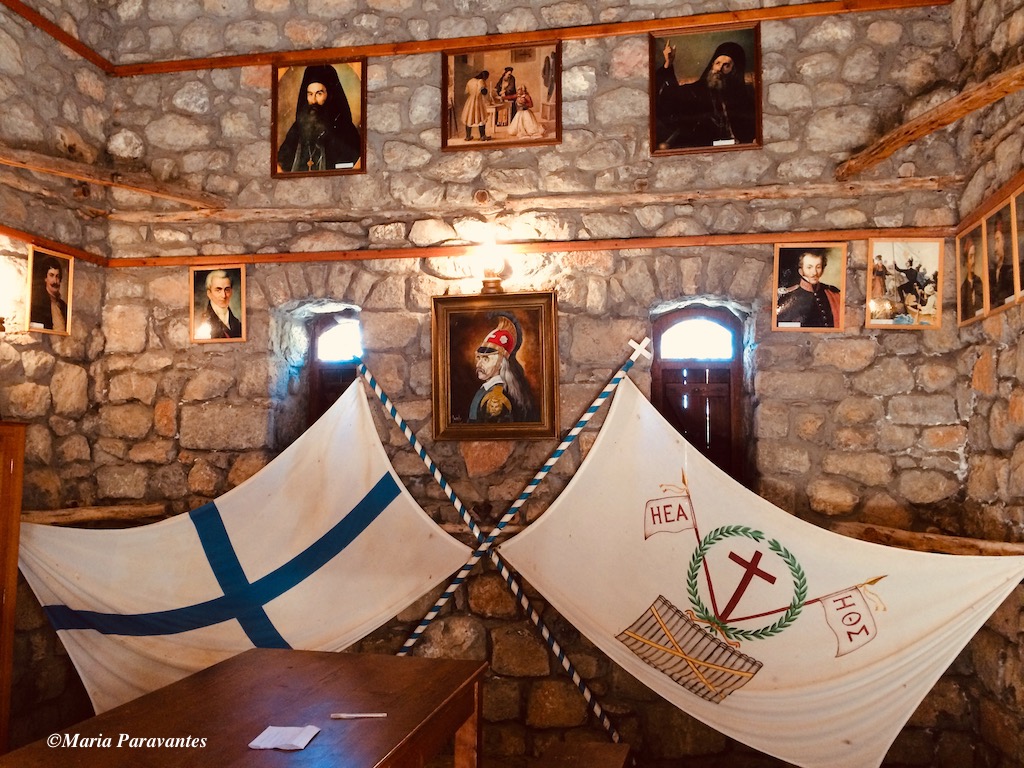
Two hundred years ago, a handful of brave and daring men and women decided it was time for Greece to be rid of the Ottoman Turks who had enslaved the country for 400 years. In 2021, we Greeks remembered those people who fearlessly launched the War of Greek Independence in 1821, which finally led to the free and independent Greece we enjoy today.
The 1821-2021 bicentennial Greece celebrations paid tribute to those events, battles, and lost lives that led up to the creation of the first modern Greek state.
Undeniably, there are dozens of works and in-depth research on the Greek Revolution, but I will try to break it down to the basics before we embark on a journey of destinations (in our next post) which played a key role in the Greek Revolution and that you can visit today.
Greek War of Independence Made Easy
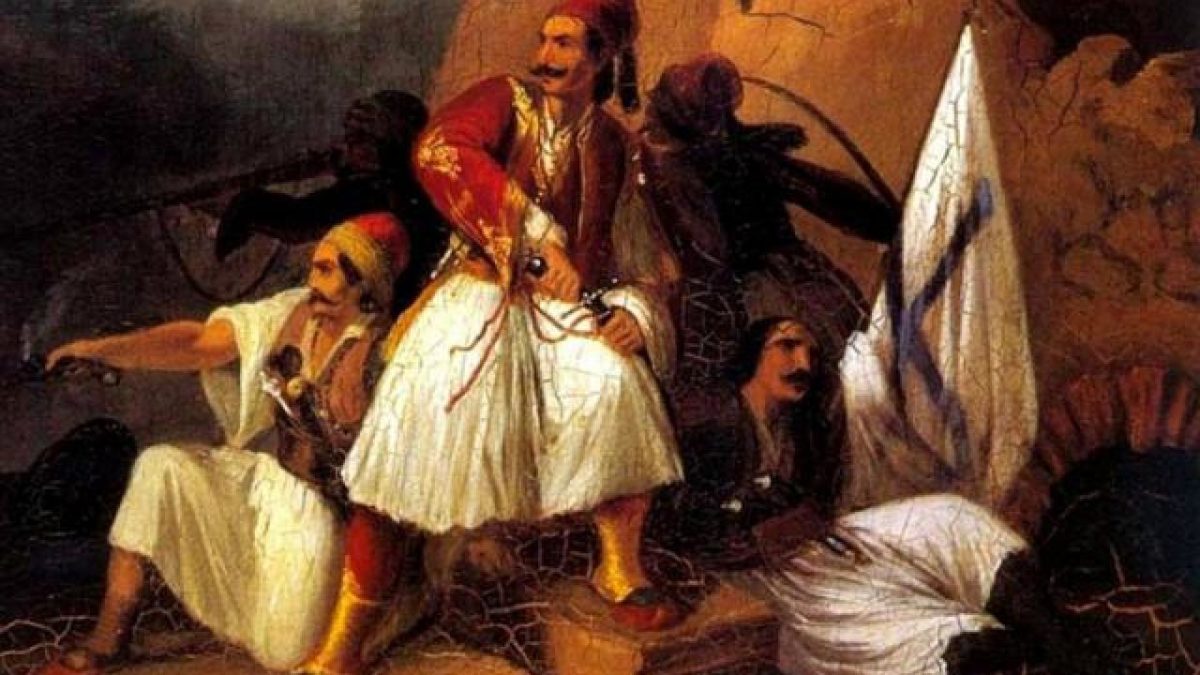
In short: the Greeks had been under Ottoman (modern-day Turkish) rule – “known as Tourkokratia” – for 400 years. It’s a long time!
Fighting hard and nearly always outnumbered and undersupplied – remember this is Greece versus the Ottoman Empire, which back then included almost all of the Middle East and the Balkans.
Just to give a sense of size, today Greece has a population of 11 million and Turkey 77 million. Plus our neighboring country is basically five times larger than Greece.
► The Enduring Legacy of the Authentic Cretan Knife
The Short Story Behind the 1821 Greek Revolution
In 1453, the Ottoman Turks invaded Constantinople (modern-day Istanbul), which was then part of the Byzantine Empire. Hagia Sophia – the seat of Byzantium and of the Greek Orthodox Church – fell into their hands marking the end of the Byzantine Empire and the beginning of slavery for the Greeks.
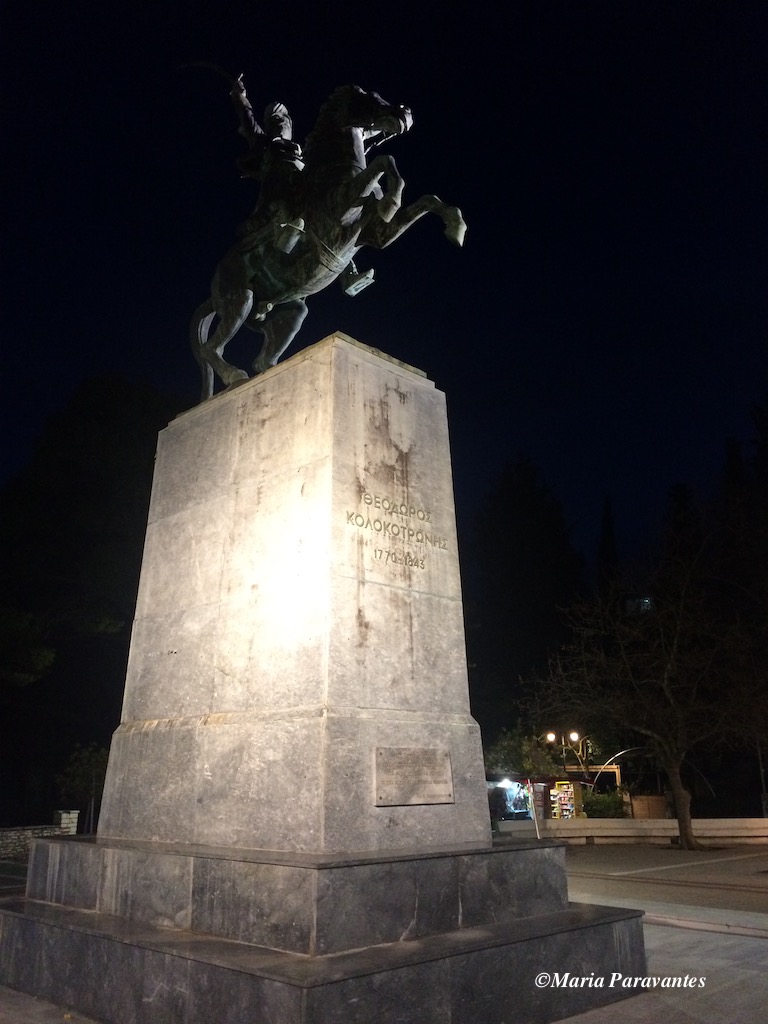
Four hundred years later, after politician Alexandros Ypsilantis releases on February 24, 1821 a declaration calling on all Greeks to revolt for “faith and fatherland” and the revolution begins.
First to action was Theodoros Kolokotronis and the Peloponnese. Kolokotronis fought out of the Arcadia mountains. He had assigned each of the villages on Mt Menalon tasks for the needs of the war. One village baked bread, the other made weapons, the other supplied wood. From there it was a matter of time, before the Ottoman Turks sieged Tripoli and the Peloponnese, then moved on to Messolonghi in April 1826, to Athens in August 1826, and to the Acropolis in June 1827.
But the war did not stop there. Let’s not forget that Greece acquired sovereignty bloody battle by battle. First, the mainland and then the islands were freed and much later appended to the Greek state, so the Greek War of Independence lasted approximately a decade from 1821 to roughly 1832.
A Break for the Parthenon Marbles
I should remind you that earlier during these 400 years of Turkish rule one of the worst cultural heritage crimes took place: in the early 1800s Britain’s Lord Elgin illegally removed half of the Parthenon’s marble sculptures and transported them to the UK by sea. The 2,500 year-old orphaned materpieces – known as the Parthenon Marbles – are the London Museum’s mega-selling centerpiece. But that’s a story for different post. Back to the war, shall we?
►Asclepius & The Ancient Wellness Centers of Greece
Back to the ‘Epanastasi’
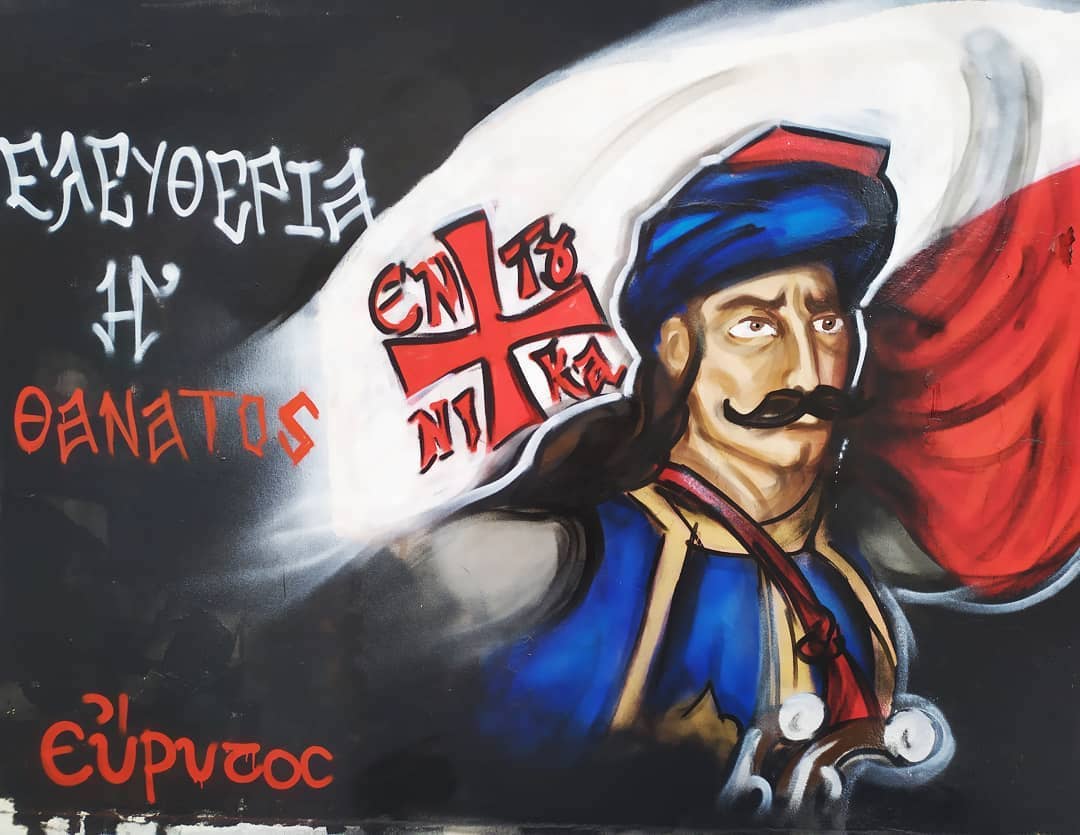
So who fought in the Epanastasi? A bunch of daring men (and women) led by Kolokotronis whose motto was : “Fire and Axe to the Sympathizers” (Fotia ke Tsekouri stous Proskynimenous).
Besides Kolokotronis, also known as the “Geros to Moria” (the wise man of Morias or the Peloponnese), other Greek heroes included Andreas Miaoulis, Odysseas Androutsos, Markos Botsaris, Georgios Karaiskakis, Konstantinos Kanaris, and female heroines Laskarina Bouboulina and Manto Mavrogenous. You’re bound to run into these Greek heroes when you walk the streets of Athens, Thessaloniki, and virtually all Greek cities where there are statues and streets named in their honor.
Eventually, Greece won the war and in 1822 it announced a provisional government which later in 1827 became the Hellenic State.
►Tsakonia: Still Speaking One of the World’s Oldest Languages
Europe Enlightened – Greece Enslaved
I should add a very important point, in my opinion, particularly when I hear and read about how Greeks are “lagging behind” their European counterparts. When the rest of Europe – inspired and driven by ancient Greek philosophy and art – was entering and exiting the Enlightenment in the 17th and 18th centuries, discovering liberty, progress, toleration, fraternity, and democracy – Greece was in the dark under Ottoman subjugation.
So in short: Greece missed out on the whole Enlightenment – the period that gave birth to some of the greatest freedoms, art, and politics.
March 25th – Greek Independence Day

Legend has it that Bishop Germanos, who was also born on March 25 in the Arcadia village of Dimitsana, is said to have announced the uprising against the Ottomans from the Monastery of Agia Lavra near Kalavryta (today home to one of the counrty’s best ski resorts).
The truth is however that March 25 was designated Greek Independence Day in 1838 by King Otto under the guidance of Ypsilantis to boost the Greek spirit.
The national holiday was celebrated several days later marked with 21 cannon shots from Lycabettus Hill at dusk and on the next day as a band played through the streets of Athens.
The king and queen at the time – Otto and Amalia – dressed in traditional costume (a national costume the “Amalia” was named after the queen) participated in the triumphant service at Agia Eirini Church now in the heart of Athens’ nightlife district. After the church services, the cannons struck again and a massive celebration followed. One tale has it that the first to lead the dance (“the horo”) was an elderly woman who claimed her right to the victory dance because, she said, she had “offered” her two brothers and single son to the war. The events closed with the illumination of the Acropolis.
►Things You Didn’t Know About the Greek War of Independence
Meaning & Symbolism of the Greek Revolution
The Greek Revolution and 1821 War of Independence demonstrate the Greek character as it was and still is today. The Greek is sadly, and often to his detriment, very patient, forgiving, and lenient. The Hellene is also unable to come together, agree, and unite. Perhaps that is why it them 400 years to rise up against the Turks and their violent ways. However, as demonstrated throughout Greek history – in antiquity during the Battle of Marathon and the Greeks’ unexpected victory over the Persians or in modern times, during the Athens 2004 Olympic Games when the world expected Greece to fail, at the 11th hour, Greeks can step up to the frontline with one goal: victory at all costs.
It is not by chance that the Pontic Greeks and their ancient Greek Pyrrhichios dance is meant to train in war, raise the spirit, and prepare for death.
That said, once the news of the Greek struggle for freedom reached Europe through the artists and poets of the times, people were impressed by the vigor, the perseverance, and courage with which Greek men, women and children faced death. During the 1821 War for Independence, thousands of Greeks were massacred, hundreds of villages burned to ashes, and thousands of churches and temples destroyed. And yet, they won, managing to oust the Ottoman Turks once and for all. However, if there is one thing we should all learn from our past: war and violence are never a way forward.
That said, The Greek Vibe pays tribute to those who lost their lives for the ideal of freedom – personal and national – but also as a reminder that we should never ever again allow war or violence.
♬ I end today’s post with “Na’tane to ’21” (If Only it Were ’21) sung in 1969 by George Dalaras and compοsed by Stavros Kougioumtzis to the lyrics of Sotia Tsotou about the Greek War of Independence.
❤️ Follow The Greek Vibe on TikTok too!
Enjoyed this Post? Share and Pin it!
